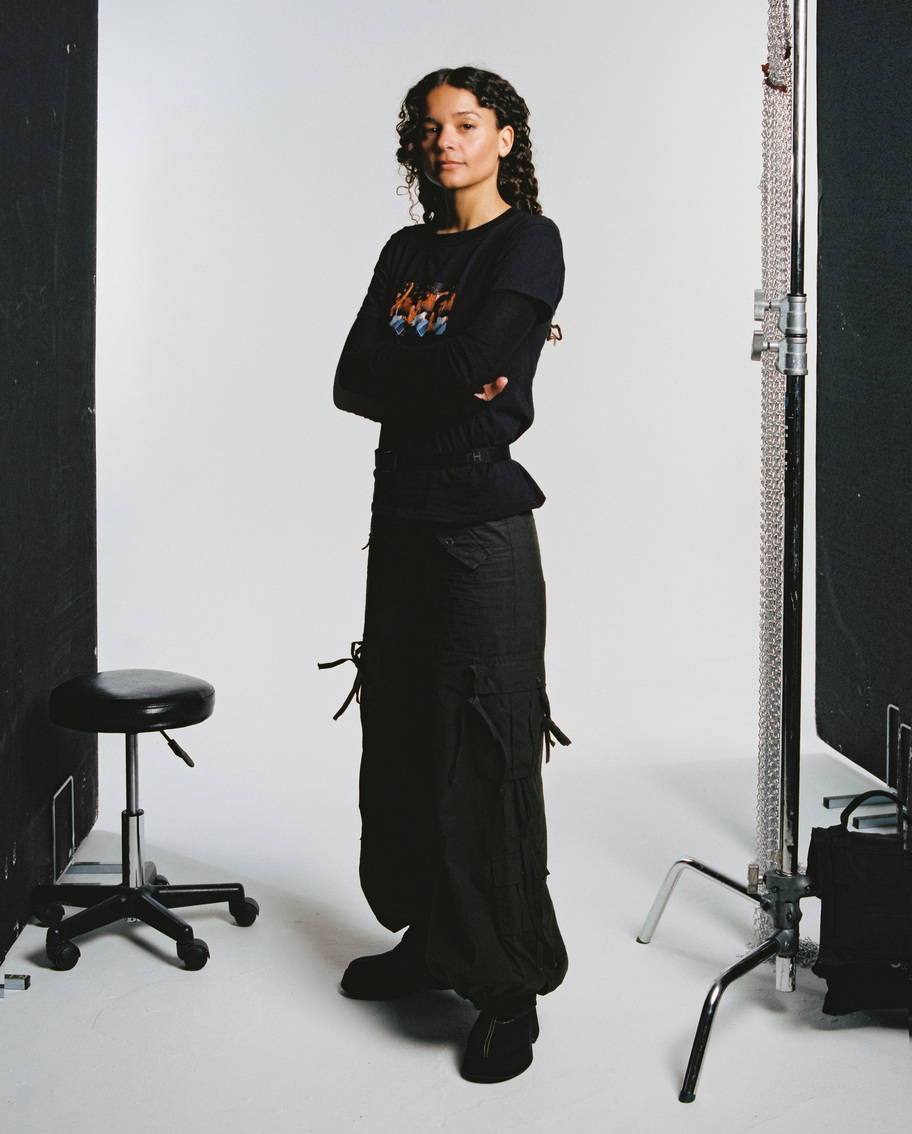
Two years ago, Erika de Casier and Dev Hynes met to record a song. De Casier had admired the polymath’s category-defying career for over a decade. Hynes had kept an eye on the low-key Danish pop whisperer since her 2019 debut Essentials, an album that quickly became synonymous with a discerning cultural cachet.
The result of their first collaboration, on Blood Orange’s Four Songs EP, is “Relax and Run,” a slow-burn snapshot of a life gone stale—“Choose a spark, a feeling, what’s left? / Dry, boring, nothing but dread.” For de Casier’s third album, out yesterday with 4AD, the pair reunited to cook up “Twice.”
Amid cheekier titles like “Home Alone,” “Lucky,” and “Test It,” the song injects Still’s topography with cooler tones. “You know the walls are tainted / with the love you didn’t feel / My favourite meals are tasteless, / ‘cause I cooked them once / or twice for you,” mouths de Casier in this portrait of eroded trust and soured signs.
To mark the album's release, Hynes and de Casier let CULTURED listen in on a conversation about the trials and triumphs of making an album and letting it go.
Dev Hynes: Hello! Are you at home?
Erika de Casier: Yeah, I'm in Copenhagen. You’re in New York?
Hynes: I am. I was sad to miss you in Paris.
De Casier: How long were you there?
Hynes: I was there for like a month or something. I've been there more than New York in the last year, for no real reason. The last month I was trying to write, but who knows if it worked or not. How are you?
De Casier: I'm good. I'm really happy we got to do our song [for the album]. Once I had the idea, I was like, “This could work really well [for Dev].” And [you] nailed it.
Hynes: I was happy that you gave direction. When I do my own music, it’s just me having to do it. So if I work with someone else, I kind of want to be bossed around a bit. When did you finish [the album]?
De Casier: I finished it last year in the spring, a while ago. You know, you turn something in and it just takes months… That's part of why I called the album Still, because I felt like, the more time goes by after you turn something in, the more it becomes a still of where you were at the time.
Sometimes when I finish something, I'm like, Oh, wait, now I'm past it, I want to do something different, and then I almost want to not release it. To remind myself of that, I was just like, We did it back then, and it is what it is. I'm not going to try to change it or make it into something new for now, months after.
Hynes: My last album was the first time I felt like that. Like, This is OK. I don't need to race ahead or anything.
De Casier: Sometimes there’s so much pressure on one piece of work. What I think is inspiring about you is also your connection to the classical world. Do you feel like you incorporate that when you make Blood Orange [material]?
Hynes: For all intents and purposes, I actually was intentionally separating them, which I think was a good decision for growing in both worlds. But the stuff I've been making recently—it's starting to merge. I don't care less, but it's more like, This is just what it is.
De Casier: It's cool to see artists try out different genres, different ways of working. It's also cool that you even wanted to do something with me in the first place, since objectively speaking, [you’ve worked with] much bigger artists. It's like, “Oh, I really just enjoy your music, and I really want to work with you.”
Hynes: It sounds a little corny, but I am such a music fan. People might assume that anyone who makes music is a music fan, but it's really not the case. The amount of music I consume is ungodly. Sometimes I'm listening to music while I'm making music. I'm sure it's a form of spectrum energy that was undiagnosed because I was born in the ‘80s in England, and they didn't even talk about that stuff. I feel like how I still consume and make music is like being a child and having posters on a bedroom wall and taping stuff from the radio.
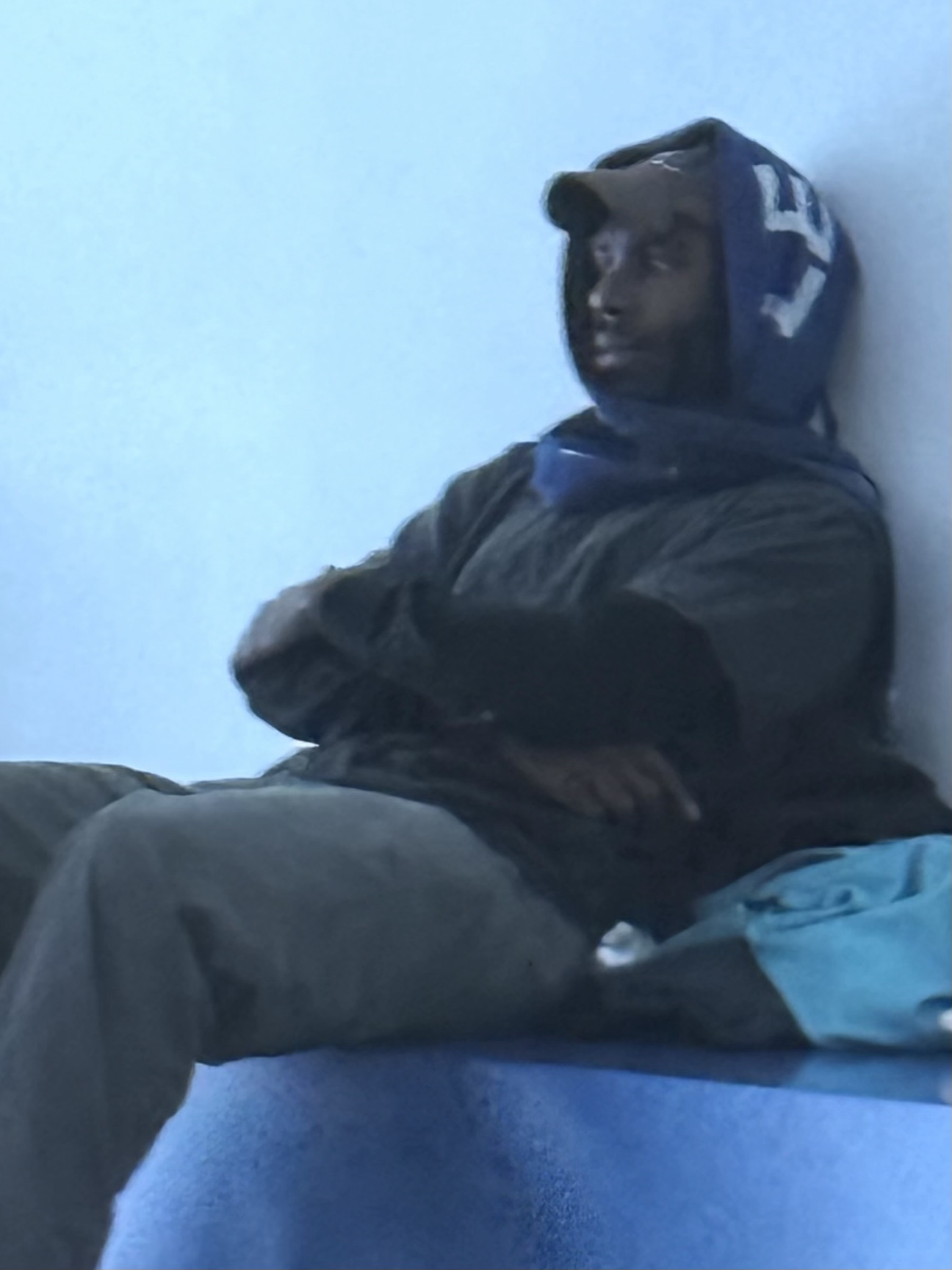
De Casier: Yeah, I remember that. Recording from the radio times.
Hynes: There's so many songs I didn't know the beginning of until later in my life. I had no idea how they started. I still sequence albums in a very similar way. I have very harsh cuts and somewhat messy transitions. That’s just how I've always heard music … You wrote some pretty big songs last year. When the NewJeans songs came out, multiple people sent them to me saying that I would like them, without knowing about your involvement in it. Then later, I found out that you wrote them. It was like a jigsaw slowly shifting in my head. Is that something you had wanted to do before or want to do more of?
De Casier: I've always wanted to try to write songs for others, but I didn't really know how to get into it. I got this email saying, “We're having this session in Copenhagen.” My friends Fine Glindvad and Henriette [Motzfeldt] and Catharina [Stoltenberg] from Smerz were also invited. What was amazing about those sessions was that it was with my friends and they seemed very keen on having people that weren't making K-pop. It was a really free space, not at all how I had imagined this high pressure world.
The craziest part was seeing how [NewJeans] took it and made it into their own world. Sometimes, I'm in a club and I hear a “Super Shy” remix, and I just go crazy. I love it. When you take away all of the pressure of like, “Oh, can I stand behind this? And is it true to me?”—it's just really interesting to see what comes out.
Hynes: I feel that way production-wise with songwriting stuff a lot. I feel very happy to not be at the helm of it. It's so free. I wanted to ask you, are there moments—it could be anything to do with this new record—that scratch an itch you've always wanted to scratch?
De Casier: It's the first time I've recorded other vocals. For example, I had They Hate Change in the studio and recorded their vocals. I really enjoyed having musicians in the studio. I'm really proud that I did that. But I also found out that you can't really run from your own sound. It's very hard, if the main elements are there, like the vocals and beats. I tend to gradually lean toward trying new stuff, which I'm comfortable trying out, but there's just like some pull to your own sound. You spend years trying to find it, or you think you're trying to find it. And then all of a sudden, it's something you can't really escape.
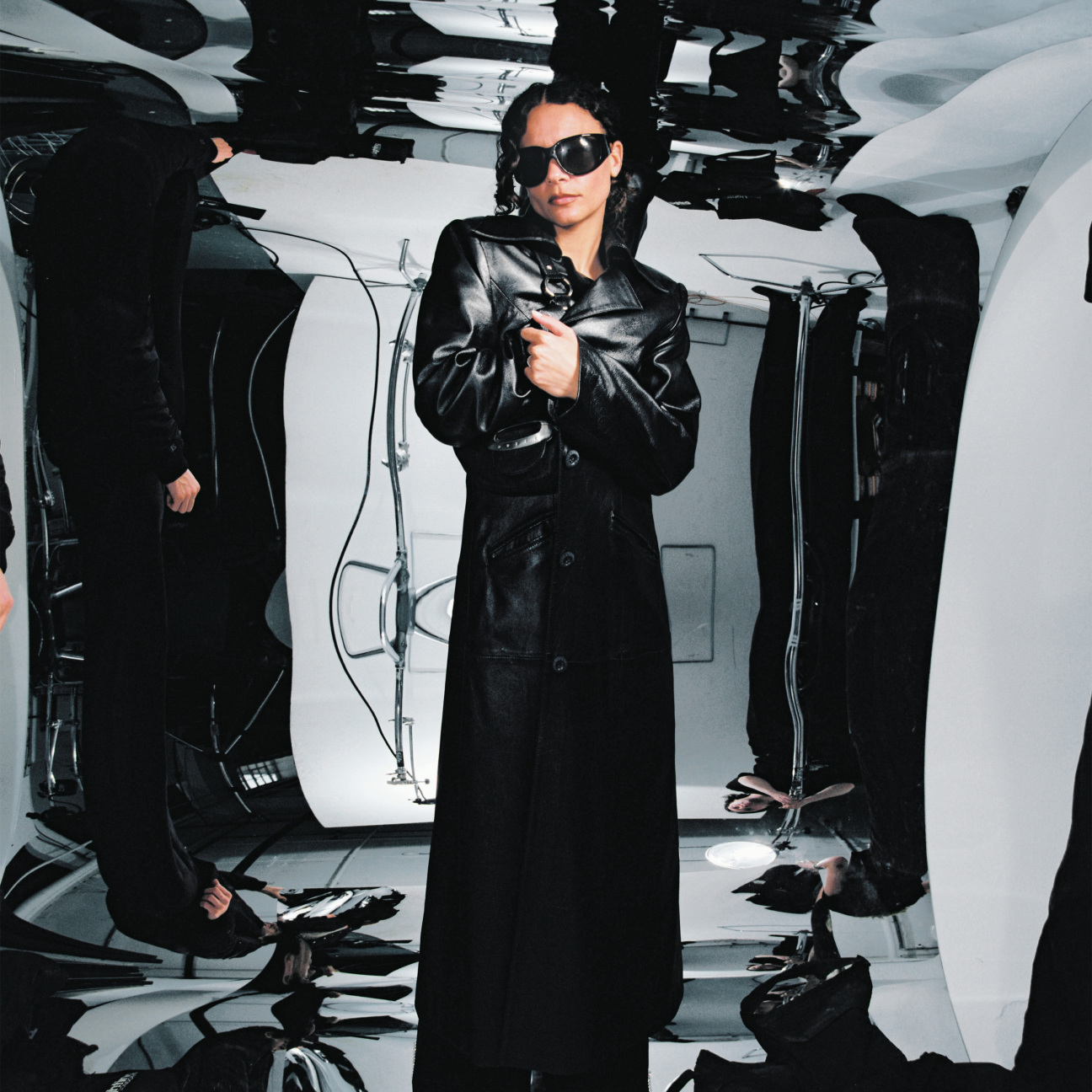
Hynes: I fully agree with that. I always called it the human filter. I have some friends that don't listen to music when they make music because they're scared that maybe it will do some kind of thing. But I think no matter what it does, the way you're going to let it out is just—it's you. Are you thinking mostly about the positive when you are about to release something?
De Casier: I try to. On every album I've made, there's probably like two or three things—lyrics, music, engineering, whatever it is—that really do it for me. There's always those couple moments where you're just like, yes, actually, that's it. Half the time it's stuff no one will see, or pick up on, or notice. A lot of people think everyone releasing music has the exact same goals. But it's just not the case. It's so vast.
And there's all this other stuff around it. To make the vinyl and the aesthetics—How's it gonna look? But I'm so happy that you wanted to be on this track. I love your part about the night bus. When I hear it, I see myself on the night bus.
Hynes: More night bus references in music. Do you have a lot of shows coming up?
De Casier: I have a U.S. tour, a Canada tour, and a European tour. Then the festivals are starting. What about you?
Hynes: I have no shows. Nothing.
De Casier: Well, you just played 15 times at Madison Square Garden.
Hynes: That's like over a year ago now.
De Casier: You were like, “Bye. I'm done. I did what I had to do.”
Hynes: I want to try and do something. I was actually trying to come up with live concepts, to try and put together more of a live recording session. But what I should probably do is finish recording, and then play live, and not just try and kill time and mash them together.
De Casier: Is that how you prefer to work? You write, and then you take months for that, and then you play, and only play?
Hynes: Yeah, I really need to be doing normal stuff to write. I really need to be human. Being a live, front-facing performer is not a default setting for me. So I have to reprogram essentially to do it. But I could truly just record forever. I could keep going and never stop. It's getting hard to form an album.
De Casier: Because you're good at starting it and not finishing it?
Hynes: Yeah, it never ends. It's a weird thing where on nearly every album, there are songs that are maybe like seven or eight years old that I've just been tweaking consistently and it goes in this weird loop that moves along. It’s annoying and taxing.
De Casier: Maybe you should try a limit. Like, I can only open this project eight times. So by the sixth time, you're like, Okay, I can only open it twice more.
Hynes: Wait, I actually love that though. It's like, "Oh shit. No messing around now."

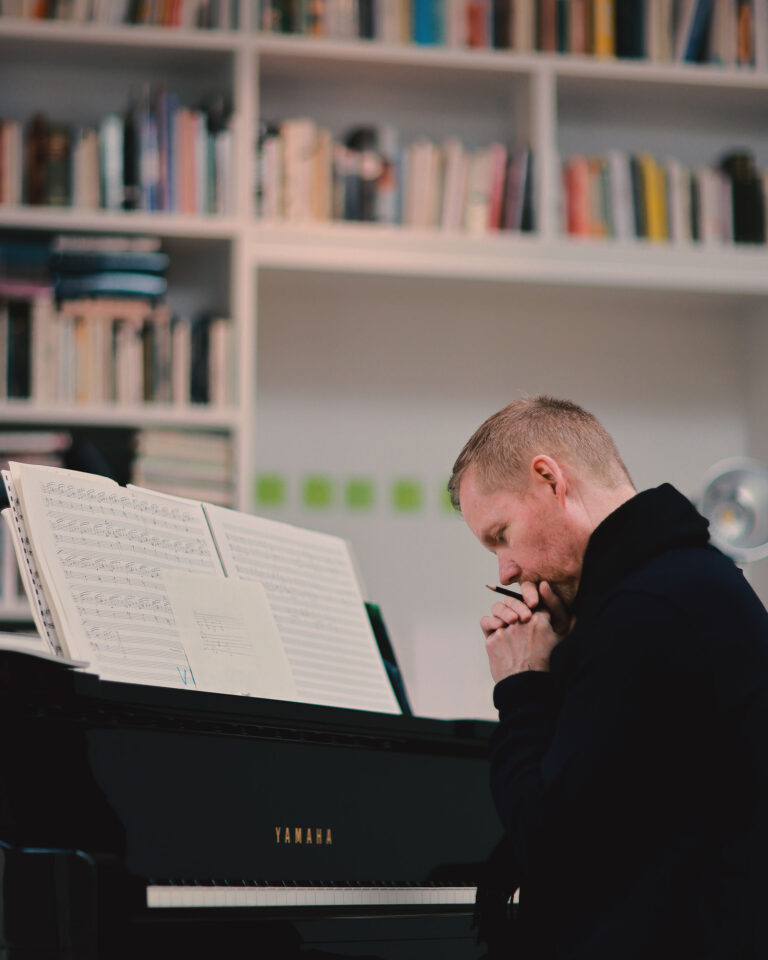
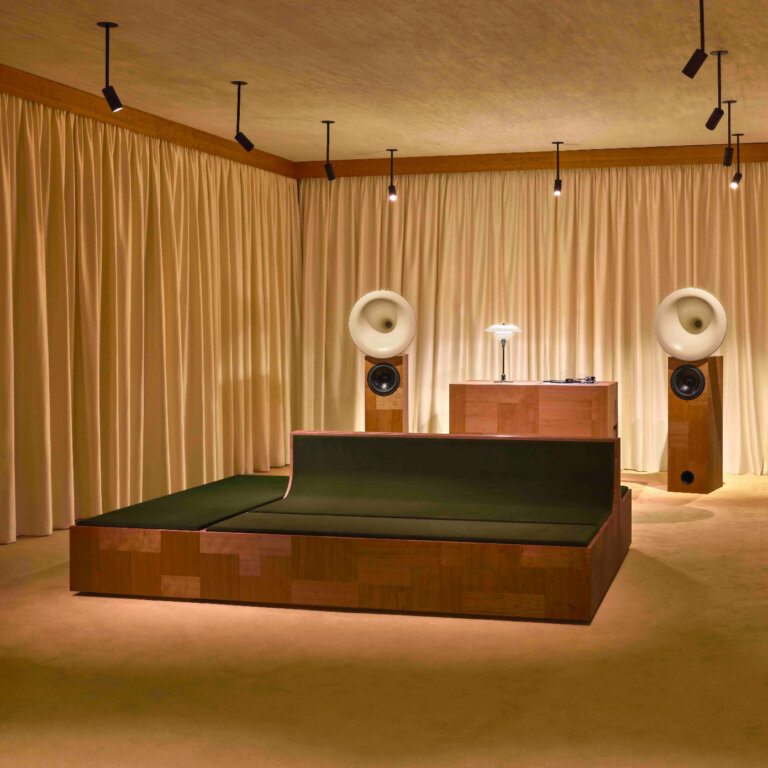
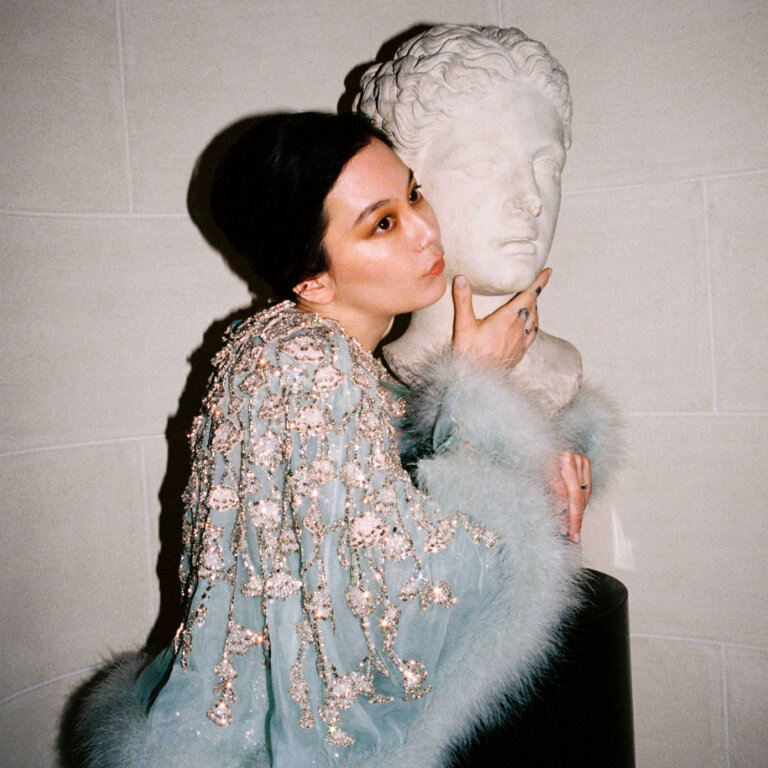
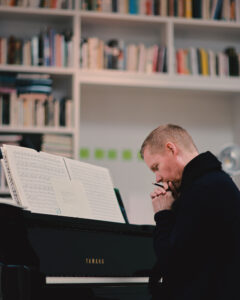





 in your life?
in your life?

